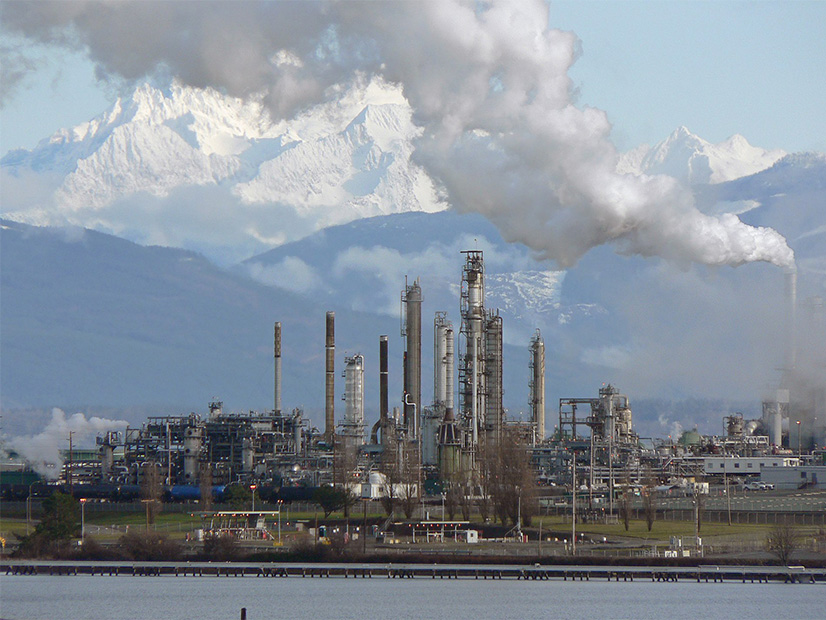
Washington low-carbon fuel standard (LCFS) credit prices will likely range from $35 to $45 per metric ton by 2025, according to a company that analyzes carbon markets.
Analysts from cCarbon provided their estimates during a webinar on March 29.
A 2021 law that went into effect Jan. 1 requires Washington fuel providers to reduce the carbon emissions from gasoline and diesel sold in the state to 10% below the 2017 baseline by 2028, followed by 20% reduction below the baseline by 2035. The bill excludes from those targets any fuel that is exported out of state or used by waterborne vessels, railroad locomotives and aircraft. The goals apply to overall vehicle emissions in the state and not to individual types of fuels. Northwestern Washington has five oil refineries.
The law includes interim annual goals for individual fuel providers. Providers whose total emissions fall below their targeted goals will receive credits, while those exceeding targets will be required to buy credits from the lower-polluting providers. The law applies to providers selling fuel in volumes greater than 360,000 gallons per year.
During the webinar, cCarbon associate Bikash Maharaj noted that California LCFS credits are currently priced at $66.70/MT, as the state seeks to reduce vehicle emissions to 20% below the 2010 level by 2030, while Oregon credits are going for $117, as that state looks to cut vehicle emissions to 37% below 2015 levels by 2035. British Columbia credits are currently priced at $334, as the province seeks to reduce its vehicle emissions to 20% below 2020 levels by 2030, he noted.
In an email to NetZero Insider, Mafer Barrera, cCarbon client insights and partnerships manager, said the company’s estimate of a comparatively lower $35-$45 price range for Washington’s LCFS credits is based on speculation that the state’s biofuel supply chain faces fewer economic pitfalls than California and Oregon. The lower estimate is also based on growth projections for zero-emission vehicles in the state over the next several years.
The purchase and selling prices will be decided solely by the market with no state government influence, Maharaj said during the webinar. The emission thresholds are expected to shrink by 0.5 to 1.5% annually, he said.
Washington’s 7.6 million vehicles emitted roughly 40.3 million MT of carbon in 2017, accounting for 39 to 45% of the state’s overall carbon emissions, according to various estimates. The state wants to shrink that by 4.3 million metric tons annually by 2038.


